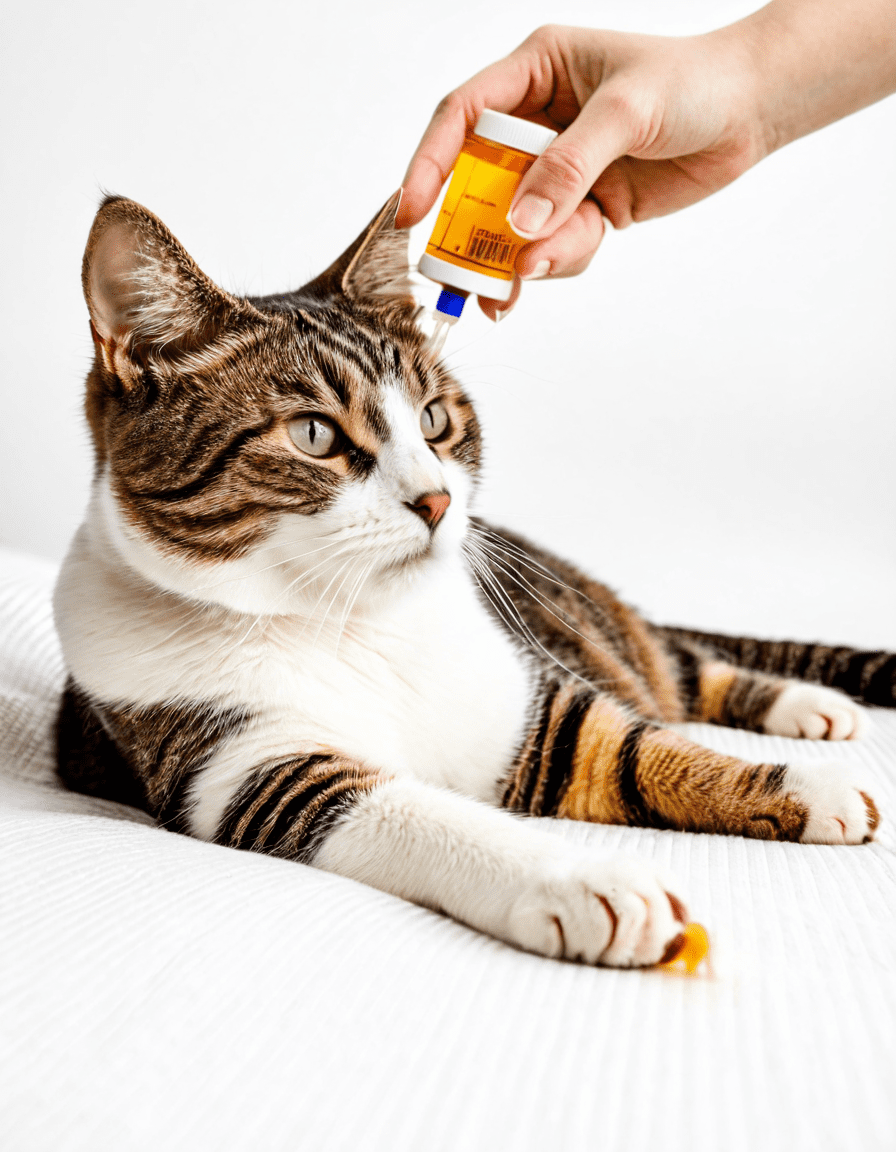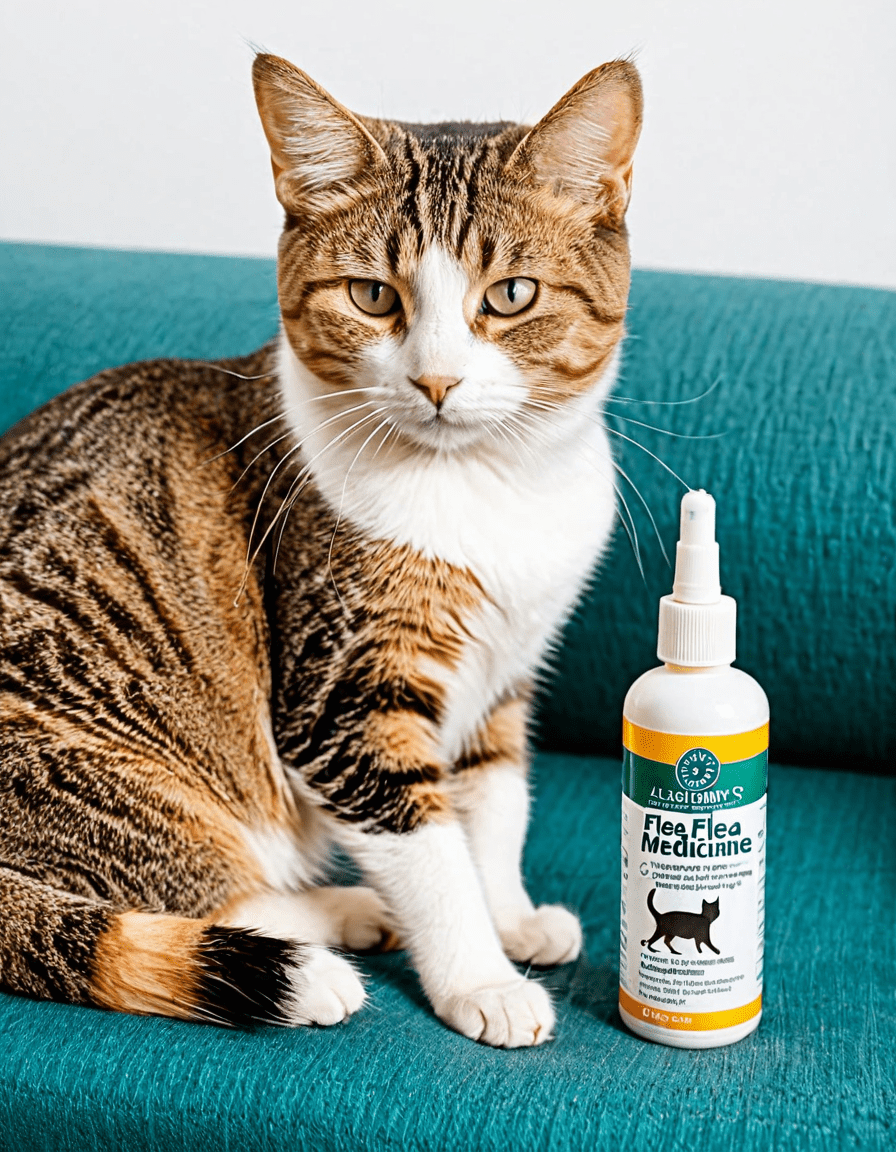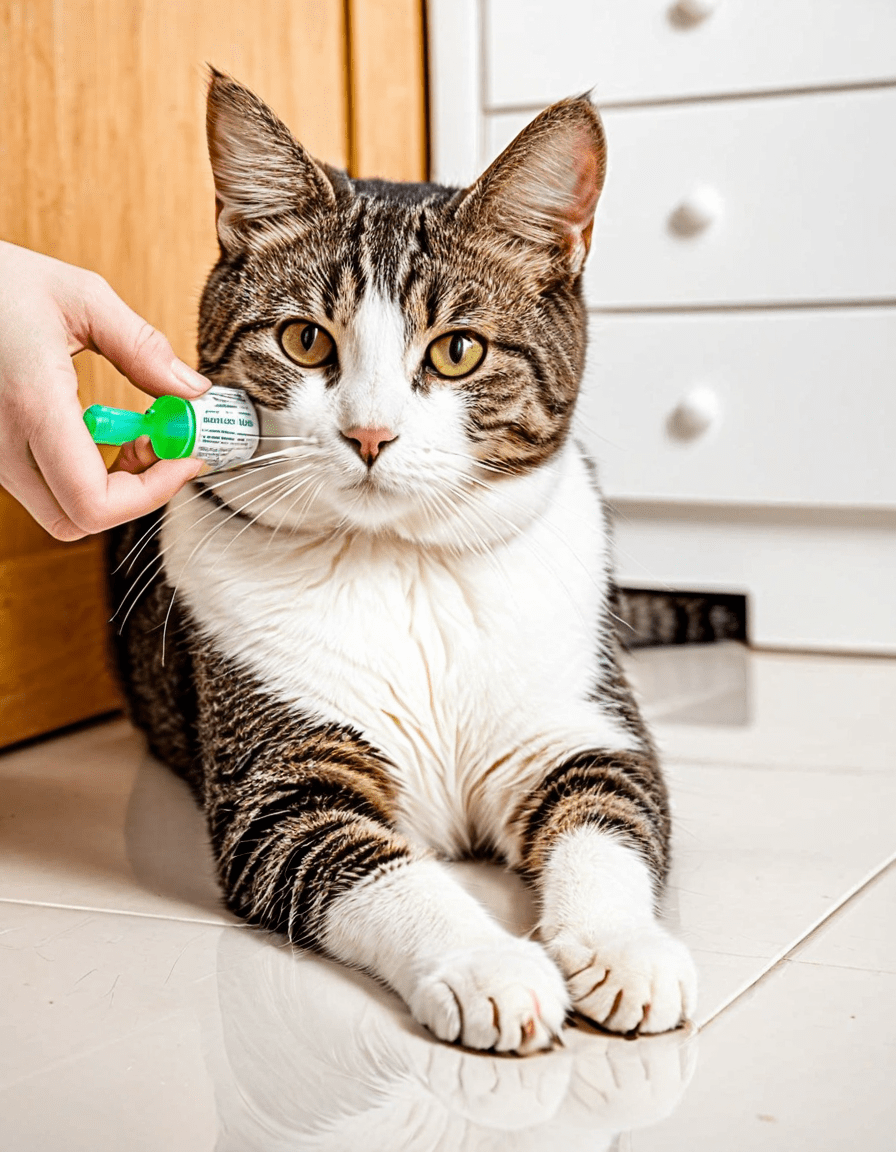Fleas can turn your furry friend into a scratching, uncomfortable mess. That’s where flea medicine comes in handy, providing a barrier against these pesky intruders. But how early can you reup on flea medicine for cats? It’s crucial to understand the different types of flea treatments available and the recommended application timelines to keep your cat safe and comfy. Let’s dive into everything you need to know about flea medicine for your feline companion.

1. Understanding Flea Medicine: Types and Their Durations
Flea medications for cats come in various forms, including topical treatments, oral tablets, and flea collars. Each one serves a unique purpose and has a different duration of effectiveness. For instance, Frontline Plus is well-known for providing protection against fleas and ticks for up to 30 days. On the other hand, Bravecto offers a longer-lasting effect, providing up to 12 weeks of protection with just one dose.
Understanding the duration of each flea treatment is key. You wouldn’t want to reapply your cat’s medication too soon, risking potential toxicity or side effects. This is especially true for those using topical options like Revolution, which is advised to be reapplied no sooner than every 30 days. Always check the manufacturer’s guidelines for details specific to your product.

2. How Early Can You Reup on Flea Medicine for Cats?
The general rule of thumb is to stick to the prescribed time frame indicated by the manufacturer. Reapplying medication before it’s due can lead to serious issues. Most veterinarians emphasize a cautious approach when considering how early you can reup on flea medicine for cats. For example, using Advantage II, a popular topical treatment, should not happen more than once every 30 days.
In cases of heavy flea infestations, it might be tempting to reapply sooner. But be wary! This can lead to adverse reactions such as skin irritations or even toxicity in more severe cases. Therefore, if you suspect that the treatment isn’t working after the designated time frame, it’s a good idea to consult with your veterinarian. They’ll help you determine the best course of action.
3. Signs It May Be Time to Reup on Flea Medicine
If you’re questioning whether it’s time to reapply your cat’s flea treatment, watch for telltale signs that something might be amiss. Here are some common indicators:
Seeing these signs can be alarming. Always consult with your veterinarian before deciding to reapply. They might suggest a different medication or additional strategies to tackle the issue effectively.
4. Alternatives and Natural Remedial Options
If you’re interested in exploring alternatives, there are natural options worth considering alongside conventional treatments. For example, neem oil has gained popularity as a natural flea deterrent. Where can you buy neem oil? Retailers such as Amazon, local pet stores, and health food shops often stock it. However, it’s crucial to consult your vet to ensure this option is safe and suitable for your cat.
Integrating natural remedies with conventional medicine can sometimes enhance effectiveness. For instance, mixing certain treatments under vet guidance may offer a more comprehensive approach to flea control. Just remember, never substitute professional advice for natural options without checking first.
5. Evaluating Your Flea Prevention Strategy
Flea prevention isn’t a one-size-fits-all solution. The frequency of flea treatments depends on various factors, including your cat’s lifestyle. For instance, if your cat spends a lot of time outdoors, you may need to apply treatments more frequently. Conversely, indoor cats usually require less frequent flea medicine.
Understanding your cat’s environment is vital. If you live in an area with a high flea population, consider additional preventive measures. Utilizing products like Advantage II combined with regular checks for fleas can bolster your defenses against infestations.
6. Supplementing Flea Control: How Does Distilled Water Go Bad?
While not directly related to flea treatments, keeping your pet’s environment healthy is crucial. Many pet owners prefer using distilled water for their cats to avoid any harmful minerals in tap water. Does distilled water go bad? Technically, it doesn’t spoil, but it should be kept in clean containers and ideally consumed within a few weeks of opening for the best quality.
Providing your cat with clean water keeps them hydrated and leads to better overall health, which can indirectly support your flea control efforts. When your cat’s immune system is strong, they can better cope with any flea burdens.
7. Innovative Flea Remedies and Trending Products
The year 2026 has seen an array of innovative flea control solutions. One trending natural remedy is native you coconut oil, praised for its moisturizing properties and potential effectiveness against fleas. When used properly, this oil can assist with flea prevention.
These emerging products find a place within the natural pet care movement. Integrating these solutions under the advice of your vet may offer a holistic approach to keeping those bothersome fleas at bay.
Tailoring Your Approach to Flea Prevention
Flea treatment doesn’t have to be intimidating. By understanding the various types of medications, the timelines for applications, and recognizing when flea issues arise, you’ll protect your beloved feline from unwanted guests. Don’t forget to explore natural alternatives while seeking veterinary advice to create a tailor-made plan for your cat’s specific needs. Staying informed about new products and prevention strategies will help you as a responsible pet owner in safeguarding your companion’s health.
In summary, keeping your cat flea-free involves vigilance, understanding, and sometimes a little creativity. By asking yourself, how early can you reup on flea medicine for cats and acting accordingly, you’ll ensure your furry friend stays happy, healthy, and comfortable.
How Early Can You Reup on Flea Medicine for Cats
Taking care of your kitty means tackling those pesky fleas head-on! So you might wonder, how early can you reup on flea medicine for cats? Generally, most flea treatments allow for reapplication at intervals ranging from 30 to 60 days. However, some factors can impact this timeframe, like the specific product you’re using and your cat’s weight or health condition. After all, keeping your furry friend flea-free is crucial, yet requiring some thoughtful timing too—sort of like choosing a Christmas tree with tinsel, where timing impacts the decoration process significantly!
Timing Your Treatment
When it comes to reapplying, it’s essential to read the label on the flea medicine carefully. Manufacturers design these products with specific usage schedules to maximize effectiveness. If you’re unsure or your cat is having a particularly bad flea season, consult your vet; they might suggest a switch to a different product, akin to adjusting your art prompt generator for inspiration—it’s all about what suits your needs at the moment! Here’s a fun fact Of The day for you: cats can actually be allergic to flea bites, leading to discomfort and irritability. This further underlines the importance of keeping those little critters at bay as soon as possible.
Common Mistakes to Avoid
One common mistake pet owners might make is thinking that more is better. If your cat seems like they need a little extra help, hold off on the temptation to apply more if it’s not yet time! Just like finding out whether can cats eat i c e cream safely, proper information is key. If your cat is scratching relentlessly, look for a treatment that might better address the issue instead of increasing the dose or frequency. And while we’re pondering timely interventions, good news! Some flea medications can be monitored or possibly even reddit surgery to be shorter to alleviate treatments, leading to less hassle for both you and your feline pal.
Remember, striking a balance in your kitty’s flea management is important. It’s all about finding the right approach that suits your furry family member—just like figuring out which factor influences how people define their personal body image can vary from person to person. So give your cat the best chance at a flea-free life while also ensuring you’re not overdoing it!



